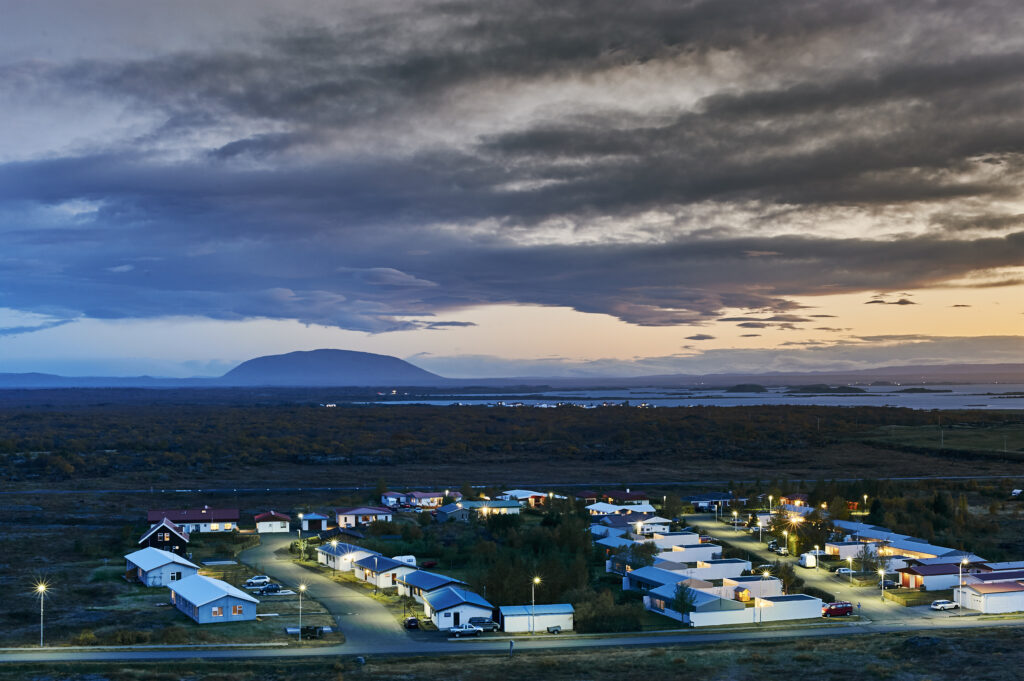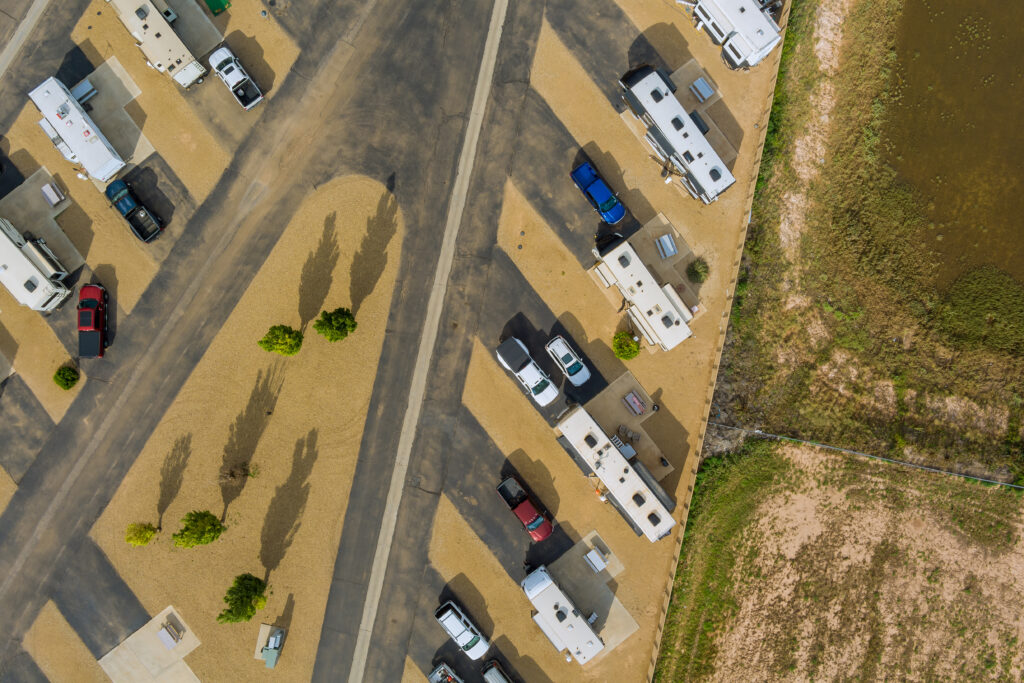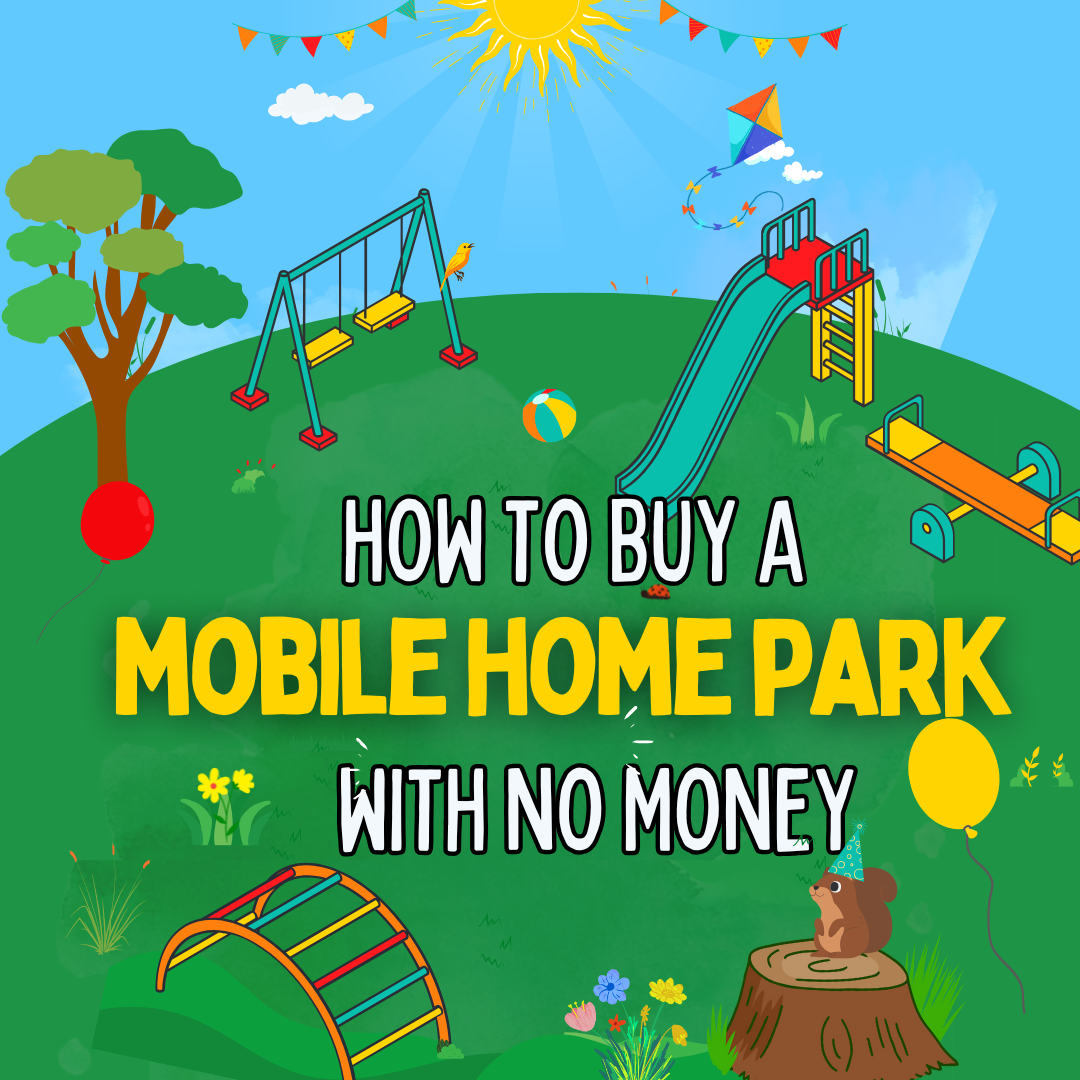Introduction
How to buy a mobile home park with no money ? Starting a mobile home park might seem impossible without upfront capital, but there are effective strategies available to you that allow you to enter this lucrative market without breaking the bank. This comprehensive guide offers steps and case studies on how you can purchase one even with unpromising bank account balance. Through creative financing techniques, partnerships, or negotiation skills you can turn your vision into reality and bring the dream home park of your dreams closer.
Mobile home park investing provides a reliable source of revenue with its consistent demand and low operating costs, providing investors with an opportunity to acquire assets without directly incurring costs themselves. So let’s dive right in. Here is our step-by-step process of opening a mobile home park.

The State of the Mobile Home Park Market
Mobile home parks represent one of the safest real estate investments available today in America, catering to demographics in need of affordable housing whose demand consistently outpaces supply. According to research from Manufactured Housing Institute there are an estimated 43,000 mobile home parks throughout the U.S. owned by individual investors or family-based enterprises.
Yet these parks face challenges like underutilization and outdated management practices, providing potential buyers with opportunities for revitalizing operations. Thanks to creative financing options available through this market dynamic, first-time investors may even enter without substantial funds at hand.
Step 1: Research and Identify Potential Parks
Select parks that align with your investment objectives by looking for key indicators like these:
- Location: Parks located within close proximity to urban centers or areas experiencing high population growth are highly beneficial.
- High Vacancy Rates: High vacancy rates could indicate mismanagement; capitalizing on this could yield tremendous returns for you and the community as a whole.
- Owner Motivation: Owners looking to retire or have operational challenges often want to sell under favorable terms.
LoopNet and Mobile Home Park Store can assist with finding listings while direct outreach can reveal off-market opportunities.
Step 2: Develop Your Acquisition Strategy
Without money to invest, creativity will be your only ally when making investments with no initial cash outlay. Here are three common approaches:
- Persuade the park owner to be your lender: then pay directly into them over time instead of needing a bank loan. This option works especially well when working with motivated sellers.
- Partnerships: Join forces with an investor who possesses both funds and operational know-how; you run the park while they supply capital in return for ownership in it.
- Master Lease with Option to Purchase (MLOP): Leasing the park with an agreement to buy later allows you to generate cash flow while improving it simultaneously. This solution gives your organization time and resources for growth before investing.
I can sometimes feel intimidated by the task of convincing someone else of my asset management skills when there was no financial stake attached. But preparation and confidence when presenting my plan made all of the difference: sellers want solutions, so if yours can address any specific needs they’ve expressed they will listen more readily.

Step 3: Build a Convincing Pitch
Sellers and partners need a clear vision of your vision. Here is what should be in your pitch:
- Market Research: Present data demonstrating your park’s potential for development.
- Operational Plan: Outline how you plan to enhance the park’s performance by, for instance, increasing occupancy or modernizing amenities.
- Financial Projection: Develop accurate cashflow and ROI forecasts that benefit all stakeholders involved.
Success stories often demonstrate this approach. Consider Sarah, an inaugural purchaser who acquired a 50-lot park through seller financing with no upfront payment required to close. Her plan to reduce vacancies allowed for smooth negotiations that led her through to successful close.
Step 4: Negotiate Favorable Terms
Negotiation is key. Pay close attention to:
- No Down Payment Agreement: Incentivise the seller with long-term benefits by emphasizing how small payments will save their finances in the long run.
- Repayment Terms: Present an accessible repayment schedule at an attractive interest rate.
- Contingencies: Consider including clauses in your agreement which allow for you to opt-out if due diligence reveals hidden problems during its inspection phase.
One deal I recall wherein the seller was initially reluctant was because I didn’t have cash available as a down payment, yet when I stressed its potential benefits like increasing occupancy and addressing deferred maintenance they eventually agreed to 100% seller financing since they saw my commitment towards making sure their park became profitable.
Step 5: Conduct Thorough Due Diligence
- Do your due diligence: explore.
- Don’t bypass necessary precautions: investigate:
- Infrastructure: Assess the conditions of water, sewer and electrical utilities to assess their condition.
- Zoning and Regulations: Prioritize compliance with local laws when choosing your park.
- Financials: Carefully consider both income and expense reports of sellers to ensure profitability.
One time, I nearly fell into an irreparable deal when I failed to recognize an issue with a park’s water system at first glance. Once consulting with professional inspectors, it quickly became evident that any repair costs outweighed potential profits; better to walk away than end up stuck with unmanageable property!
Step 6: Close the Deal and Take Ownership
Once you’ve finalized terms and completed due diligence, it’s time to seal the deal with legal documentation and finalize the contract. Consult a real estate attorney as you close this transaction to make sure everything is legally bind.
After closing, focus on operational improvements:
- After closing, work towards operational improvements: Increase lot occupancy through marketing to potential residents.
- Address any immediate maintenance needs.
- Establish relationships with existing tenants for an easy transition process.
As I assumed control of my first park, I underestimated its significance to residents. After some uneasy weeks had passed, I held a meeting to introduce myself and outline plans for its management; that simple step established trust and set an excellent basis for future relationships within my new community.

Real-Life Case Study: Turning No Money into Success
Take, for instance, Jake and Lisa who acquired a 70-lot mobile home park without spending any initial capital upfront. Here’s their story of success.
- They Identified an Opportunity: They discovered an aging owner eager to retire.
- Negotiated No Down Payment Seller Financing Agreement and Monthly Instalments Over 10 Years:
- Implemented Improvements: Increased occupancy from 60% to 90% within two years by upgrading amenities and marketing initiatives.
- Achievement of Return On Investment (ROI): Within three years, their cash flow covered financing payments and they began realizing significant profit.
Challenges and Solutions
Challenge 1: Finding Willing Sellers
Many sellers hesitate to offer no-money-down sales contracts, so establish credibility by demonstrating your expertise and creating an ideal situation that benefits all involved parties involved.
Challenge 2: Managing the Park
Mobile home parks require continuous management. Hiring professional property managers may help ease this burden and facilitate faster building.
Challenge 3: Risk of Failure
Risk is inherent to every deal, but with careful research and planning can minimize potential losses.
Initial fears were of failure: what if I couldn’t pay payments or the park required more work than expected? With each deal came lessons about preparation versus fear. When focused on planning I felt empowered.
Top Strategies and Insights for Buying a Mobile Home Park with No Money
Here are the most frequently searched topics related to “How to Buy a Mobile Home Park with No Money,” along with detailed explanations:
1. What Is Seller Financing and How Does It Work?
Seller financing is an innovative approach wherein a park owner acts as the lender, bypassing traditional bank loans. Instead of making one large upfront payment, instead agree to pay in installments over time with low or negotiable interest rates. Often when sellers have difficulty managing the park due to retirement or difficulties managing it themselves. For this strategy to work successfully, however, you need to show them how your plans for maintaining or increasing profitability of their asset will reassure them they’re in safe hands.
2. How to Find Mobile Home Parks for Sale with Motivated Sellers
Locating mobile home parks for sale is key for finding no-money-down deals, with motivated sellers often retiring or managing unprofitable parks due to financial struggles or facing personal obstacles being your ideal opportunities. You can locate these opportunities via platforms such as LoopNet, Craigslist or Mobile Home Park Store. Alternatively contact owners directly. Networking within real estate groups and attending industry events could yield off market deals. Similarly developing relationships with brokers who specialize exclusively in mobile home parks can give access to listings before they hit the market!

3. Understanding the Master Lease with Option to Purchase (MLOP)
Master Lease with Option to Purchase (MLOP) offers an innovative means of buying mobile home parks without spending a single cent upfront. By leasing property under an agreement that grants the option for later purchase at predetermined pricing terms.
As part of your lease term strategy, you manage and improve operations of the park to generate cash flow to finance its eventual purchase. This strategy can be particularly advantageous in parks with operational inefficiencies as your management efforts directly increase its value, giving you more leverage when the time comes for purchase.
4. What Are the Risks of Buying a Mobile Home Park with No Money?
While purchasing a mobile home park without money is possible, there can be risks involved. Without upfront investments such as loans or equity investments, interest rates or repayment terms might increase and operational risks such as unexpected maintenance issues or tenant conflicts could occur unexpectedly. Partnerships or seller financing might involve sharing control or agreeing terms that do not always align with you. Mitigate these risks by conducting thorough due diligence, hiring property inspectors for inspection services and creating contingency plans to cover unexpected costs.
5. How to Negotiate Favorable Terms with Park Owners
Negotiation is key when purchasing a mobile home park without money. Understanding your seller’s motivations be they retirement, financial hardship or a desire for passive income is paramount in tailoring an offer tailored specifically for them such as proposing seller financing with regular monthly payments that provide steady income streams to address their specific needs and reduce concerns over its success. Above all else, always remain transparent, confident and flexible so as to build trust among both parties involved and increase chances of reaching favorable terms for both transactions.
6. Success Stories of Buying Mobile Home Parks with No Money
Real-life success stories inspire confidence and demonstrate creative financing solutions in practice. One young investor acquired a 60-lot park through seller financing by providing a detailed business plan and offering slightly higher interest rates to incentivize seller financing.
An additional buyer used a Master Lease with Option to Purchase to transform an underutilized park and ultimately obtain bank financing after increasing occupancy levels. It proof that with enough determination, planning, and resourcefulness you can overcome lack of initial capital.

Conclusion
Acquiring a mobile home park without money can be daunting but achievable through innovative strategies, seller financing, partnerships, and extensive due diligence that enable entry to the market and establishment of profitable investment portfolio. You must identify opportunities while showing value to stakeholders while adhering to your plan and remaining committed.
Now is the time to take that initial step i.e research opportunities. Create your pitch and don’t allow lack of money hold you back from reaching your goals in mobile home parks! Motivated individuals like you are needed in this industry.
FAQS
Can I buy a mobile home park without spending any money?
Yes, through strategies such as seller financing, partnerships, and creative lease options.
What is seller financing in real estate?
Seller financing allows homeowners to act as lenders and offer financing at attractive interest rates over an extended payment plan period.
How can I locate mobile home parks for sale?
LoopNet and Mobile Home Park Store provide platforms that facilitate communication directly between owners and renters; alternatively you could contact owners directly.
What Is A Master Lease With Option to Purchase (MLOP)?
MLOP allows you to lease and manage a park while providing yourself the option of eventual purchasing it later on.
Are mobile home parks viable investments?
Yes, they provide stable income due to high demand for affordable housing options.
What are the risks involved with purchasing an amusement park without funds available to me?
Risks associated with financing include higher interest rates, operational issues and unexpected expenses.
How can I negotiate a no-money-down deal?
Focus your value proposition around solving seller concerns and meeting them head on.rov What should I check during due diligence?
Perform an audit on infrastructure, zoning compliance and financials of the park.
Can I purchase a mobile home park with poor credit?
Yes, innovative financing solutions such as partnerships or seller financing may provide assistance.
What factors make mobile home parks an advantageous investment?
They offer consistent cash flow, low turnover rates and decreased maintenance costs.

